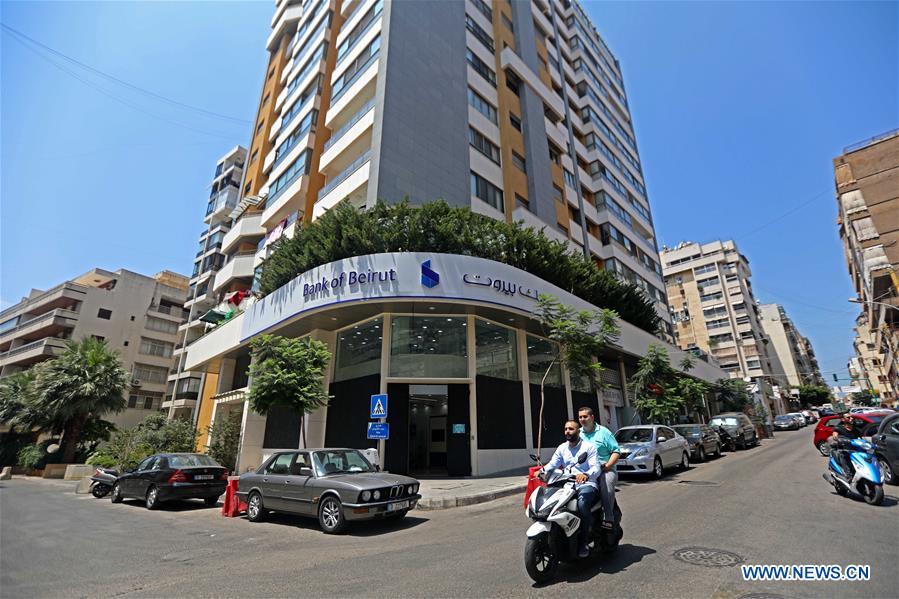
People pass by a bank in Beirut, Lebanon, July 22, 2020. (Photo by Bilal Jawich/Xinhua)
by Dana Halawi
BEIRUT, July 22 (Xinhua) -- Lebanon should restructure its banking sector to restore confidence in the financial system in the country, experts said.
Nassib Ghobril, an economist and head of the economic research department at Byblos Bank, emphasized the need to restructure banks given the economic recession, balance of payment deficit, loss of confidence and the government's decision to default on its eurobonds.
Patrick Mardini, president of the Lebanese Institute for Market Studies, told Xinhua that banks must be restructured by injecting fresh capital, attracting new shareholders or selling these banks to foreign ones.
"If some specific banks cannot recapitalize or attract interest from foreign banks, they should then consider merging with banks that are capable of attracting capital for themselves and others," Mardini explained.
Mardini emphasized that entrance of foreign banks into the Lebanese market would restore confidence in the sector.
Rock-Antoine Mehanna, economist and president at the World Economics Association-Lebanon Chapter, told Xinhua that Lebanon has around 65 banks and 1,045 branches which is considered a big number for Lebanon and they should be reduced by closing some branches and merging banks.
"Of course, this should take place in a very careful manner by looking at each bank's capital adequacy ratio," Mehanna said, adding that banks must also have proper governance.
"We should restructure boards of directors by including independent members who do not belong to political parties since board members must also be held accountable for malpractices," he explained.
In case that Lebanon commercial banks lent depositors' money to the central bank which offered them high interest rates in return, the central bank has lent the money to the government which defaulted on its public debt earlier this year.
This has sparked anger among depositors who consider that their deposits were lost in banks.
Mehanna believes that a solution to this issue is the creation of a state asset fund which includes the main profitable entities of the government.
"It should be a fund with income generating assets that shall be managed by an international body while issuing convertible notes over 10 years," Mehanna said.
"Depositors who have 500,000 U.S. dollars and more in their account can either have convertible notes or negotiate with their banks to have common or preferred shares," he added.
Mehanna insisted that these government's assets will not be sold but only managed in a way that would generate incomes for the state to pay for its liabilities.
Earlier this month, the central bank of Lebanon formed a special committee to restructure the commercial banking sector in the country.
Mounir Rached, president of the Lebanese Economic Association, told Xinhua that the aim of this committee is to inspect the banks' situation and the extent to which they need restructuring.
"Nothing has been done yet in this regard," he said. Enditem



